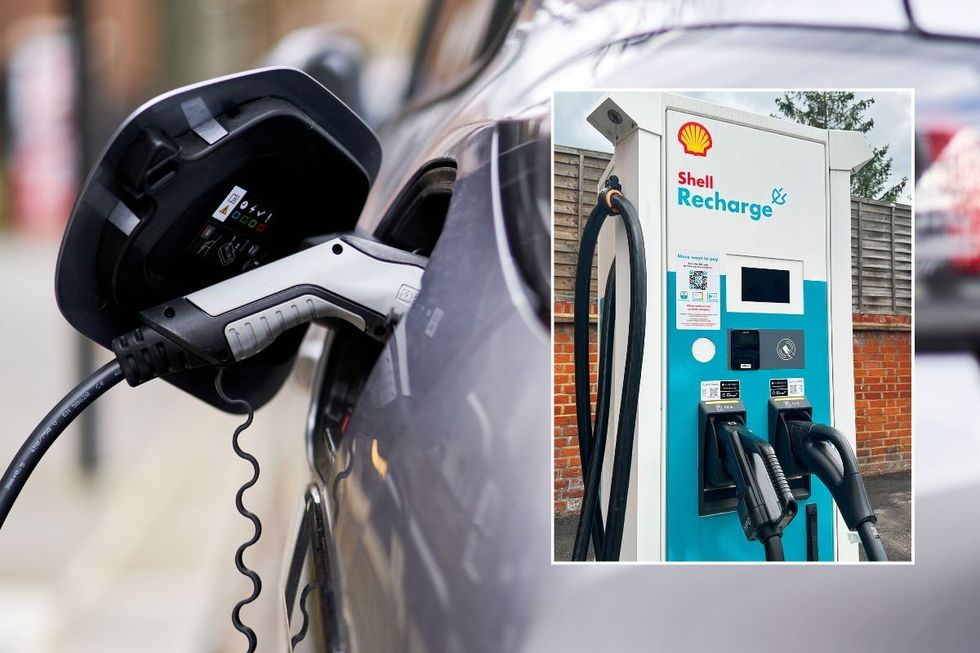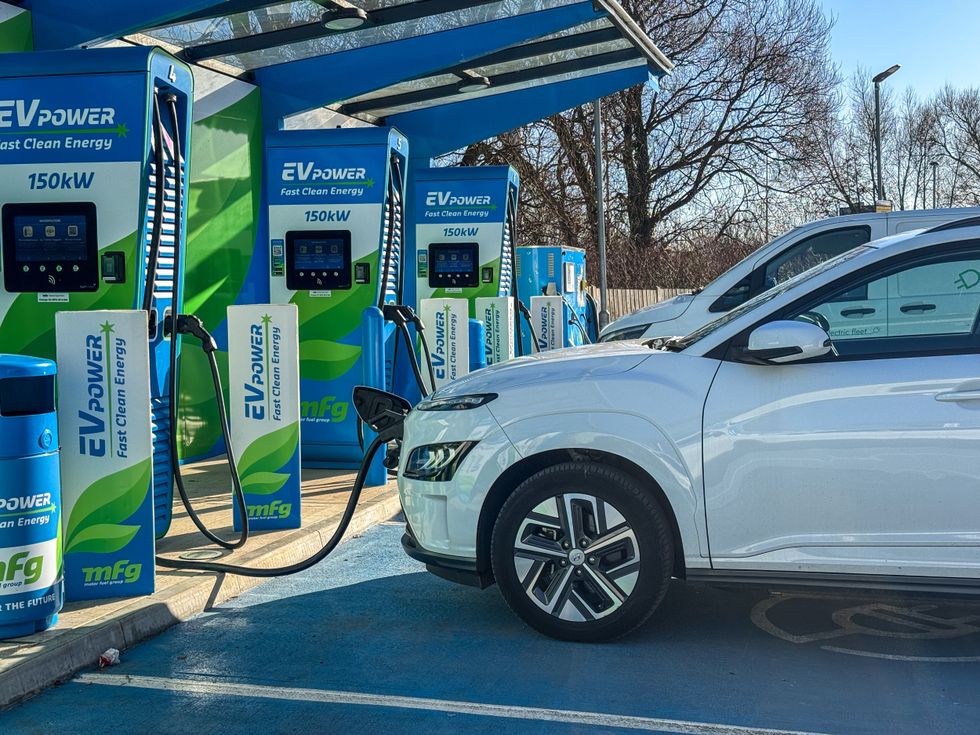Revolutionary electric car breakthrough sees vehicles charged in less than 10 minutes

'We believe this will open the door to a new generation of more sustainable, efficient and cost-effective battery EV solutions'
Don't Miss
Most Read
Latest
A major charging breakthrough has been made that could increase the battery range of electric vehicles by up to five times the normal distance.
Shell Lubricants has successfully tested a high-performance EV thermal management fluid that could unlock "significant reductions in charging times".
Research has found that this was completed without compromising the safety of the battery, thermal stability or lifespan.
Immersion cooling could allow for the widespread development of smaller and lighter batteries that are capable of "up to five times more range addition than typical" electric vehicles.
Do you have a story you'd like to share? Get in touch by emailing motoring@gbnews.uk

The new electric vehicle charging technology could give more confidence to drivers who are hesitant to switch
|PA/GETTY
Shell, alongside RML Group, developed a 34kWh battery pack using Shell EV-Plus Thermal Fluid featuring proprietary Shell Gas-to-Liquid (GTL) Technology.
This has been developed to charge a vehicle from 10 per cent to 80 per cent in under 10 minutes, drastically reducing charging times.
Thanks to the thermal fluid, any heat stresses are significantly reduced, thus allowing higher cell charging currents to be tolerated by the battery.
Shell states that using a "carefully designed lightweight and aerodynamic" electric car with an economy of 10km/kWh, it would achieve a charging rate of 24km per minute.
This is far higher than the typical 5km per minute, which is the current benchmark for many existing battery electric vehicles.
Jason Wong, global executive vice president at Shell Lubricants, said the company was "thrilled" to display the revolutionary new technology.
He noted that it would hopefully lead to "higher charging efficiencies, enhanced safety, convenience and cost-effectiveness".
Research conducted by Shell found that 44 per cent of drivers not using an electric vehicle in Europe, the United States and China have concerns around range anxiety.
LATEST DEVELOPMENTS:
- 'Killer' car seats exposed 10 years ago still on sale as drivers issued 'frightening' warning - 'Appalling!'
- Drivers warned of traffic chaos on M25, M20 and M48 after serious crashes, diesel spills and bridge closures
- Millions of drivers vow to never buy an electric car despite incoming ban on petrol and diesel vehicles
While the number of new electric vehicle chargepoints continues to grow around the world, motorists are still concerned about the viability of driving an electric car based on their own needs.
Those living in rural areas are concerned about consistently charging in public, while millions of others cite issues about not being able to install a charger at their homes.
Mr Wong added: "This evolution is a testament to our commitment to collaborative innovation towards enabling more value with less emissions - building on our experience in high-performance transformer oils, proprietary Gas-to-Liquid (GTL) technology, and single-phase immersion cooling fluids for data centres."
In August, electric cars made up 26.5 per cent of the total market share of new vehicles, according to the UK's Society of Motor Manufacturers and Traders (SMMT).

Experts said they were hopeful that the development of EV chargers could incentivise more people to switch
| GETTYExperts are hoping that the market share of new electric vehicles will continue to grow in September as drivers take advantage of the latest models on the forecourt with the new "75" number plate.
Drivers are also making use of Labour's £650million Electric Car Grant, which allows motorists to save £1,500 or £3,750 off the price of an EV if it is eligible.
Robert Mainwaring, Shell's lead engineer on the project, commented: "Consumers are in pursuit of better energy efficiency, longer driving range and faster charging. Our ambition within this project was to show how Shell EV-Plus Thermal Fluids can support significant reductions in charging time without compromising cell integrity and lifetime.
"By embracing advanced thermal management solutions, we believe this will open the door to a new generation of more sustainable, efficient and cost-effective battery electric vehicle solutions."








